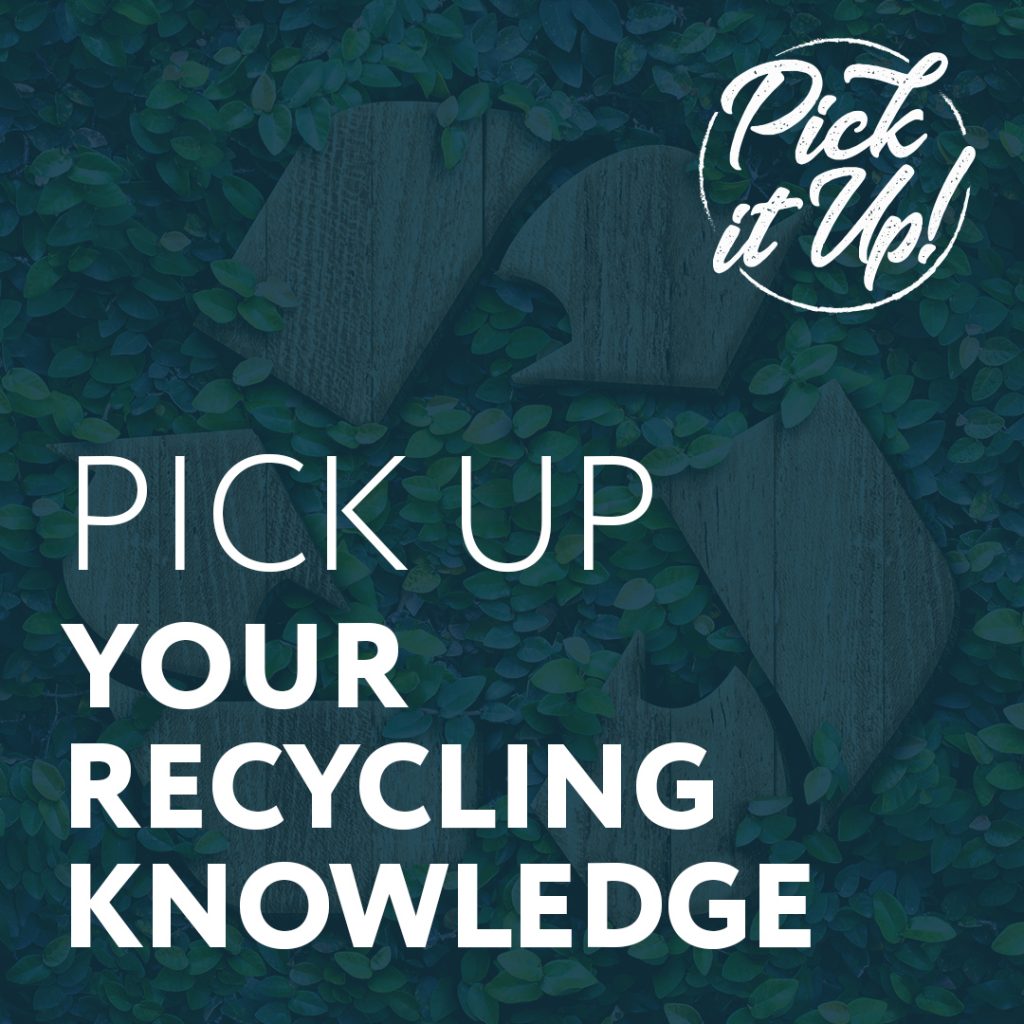Pick Up Your Recycling Knowledge

Despite countless attempts to incorporate recycling into people’s lives, a recent Yale study indicates that a mere 22% of discarded materials in the U.S. are recycled. In addition, many do not realize the importance of categorizing recyclable objects and ensuring that they are placed in the correct bin. In fact, when they are not placed in the correct area, it can cause contamination, preventing them from actually being recycled. This is especially common with plastic products, such as takeout containers, utensils, straws, bags and more. If these products cannot be recycled, they could end up in the ocean, landfills, or incinerated. This can be very detrimental to our environment, as landfills are known to emit toxic and hazardous chemicals into our air.
According to the United States Environmental Agency, “of the 267.8 million tons of municipal solid waste generated by Americans in 2017, only 94.2 million tons were recycled or composted” (Renee Cho). In an attempt to make recycling easier and more accessible to all, single-stream recycling has been introduced. Single-stream recycling is where all recyclable items, including paper, cardboard, and plastic are placed into a single bin. It was expected that the convenience of this would be an incentive for people to recycle more. However, it is estimated that around one quarter of these products have become contaminated through this method of recycling.
New Jersey has plenty of resources to ensure that your recyclables end up where they are supposed to. There are four classes of recyclables in New Jersey and it is important to know the differences. Class A consists of the products that you may think of when you hear the word “recycling”- metal, glass, paper, cardboard, plastic, etc. Class B materials include construction and demolition, such as wood, concrete, and asphalt. Plant and food matter are typically considered Class C and they are composted. Lastly, Class D materials are a hybrid of waste, ranging from light bulbs to latex paints. In order to find a local recycling center, the State of New Jersey Department of Environmental Protection provides lists, based on Class, under Recycling Information, you can view it here.
Pick It Up is passionate in our efforts of providing a cleaner and greener planet. Given the complexity and challenging aspects of recycling, the best long term solution may be to adjust our consumption and buying habits, so that we depend less on current, struggling recycling systems. We know that starting locally leaves a lasting impact on future generations, therefore, the health of our planet depends on individuals like you to think before you act. It all starts with awareness, education and action. Things like carrying a reusable shopping bag or using a refillable water bottle are simple steps that can put you on the path towards a more conservation-minded lifestyle. Make it a priority to support brands who are committed to reducing plastic, reducing packaging, and sourcing renewable materials. Stay tuned for our upcoming blog that highlights some of our favorite products and brands aimed at making a dent in the global waste dilemma.
Sources:
Columbia Climate School
Resource Management Associates
State of NJ Department of Environmental Recycling Protection Information
